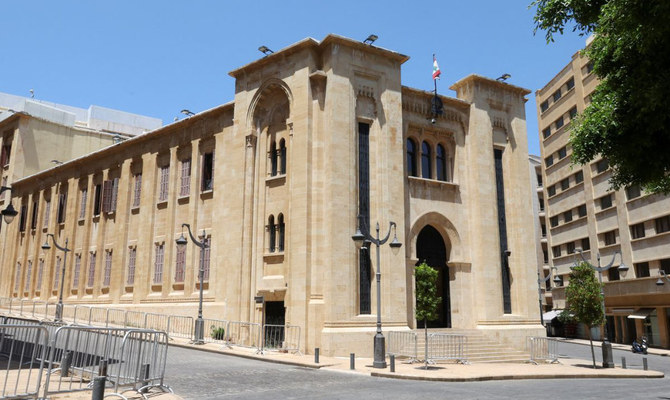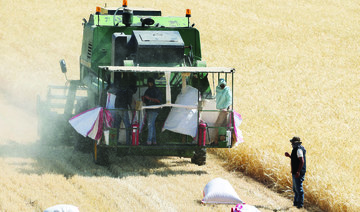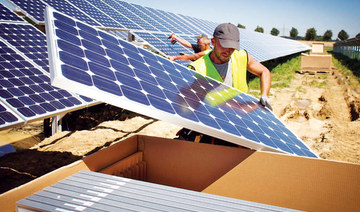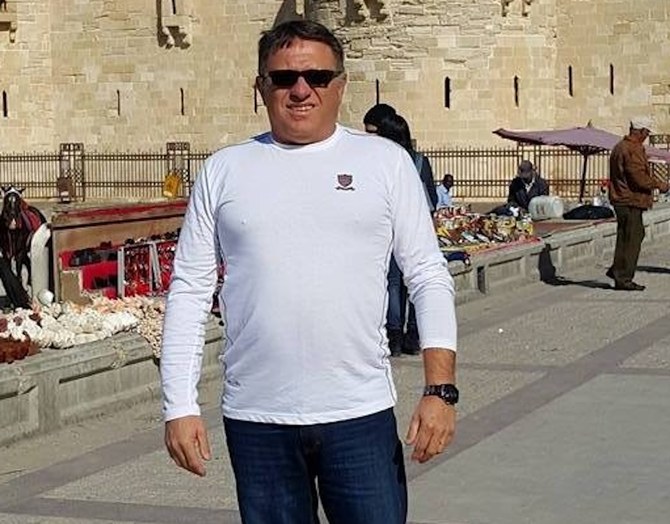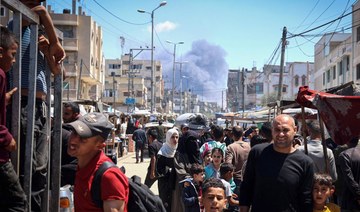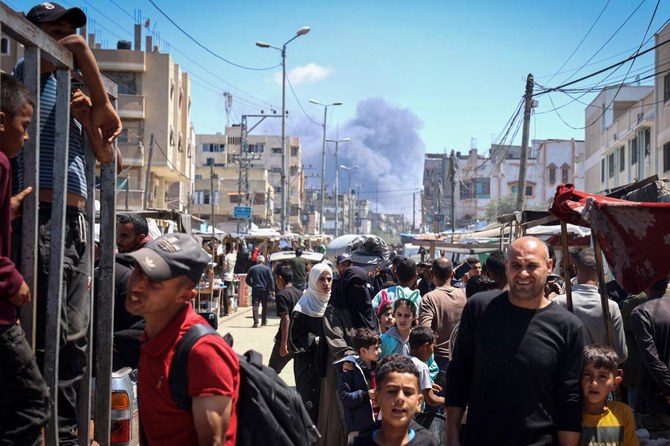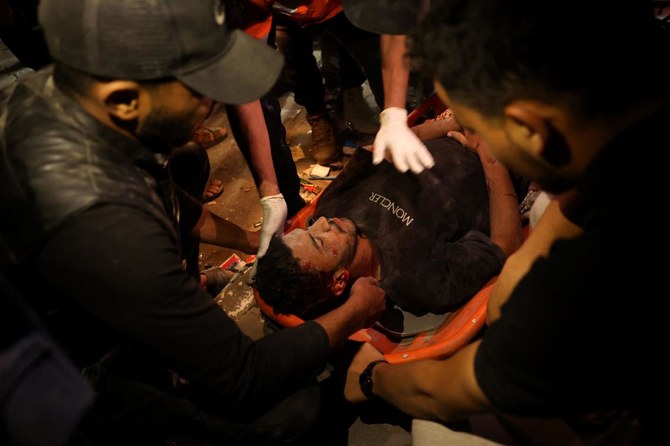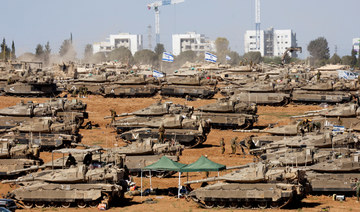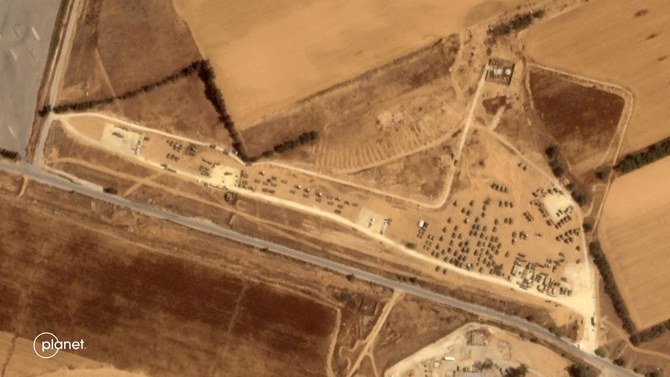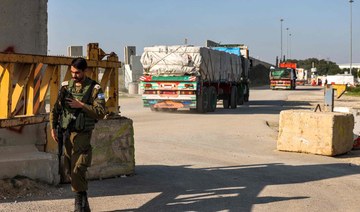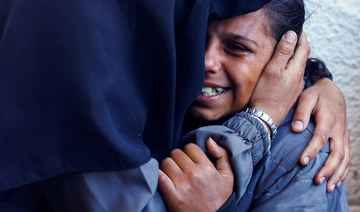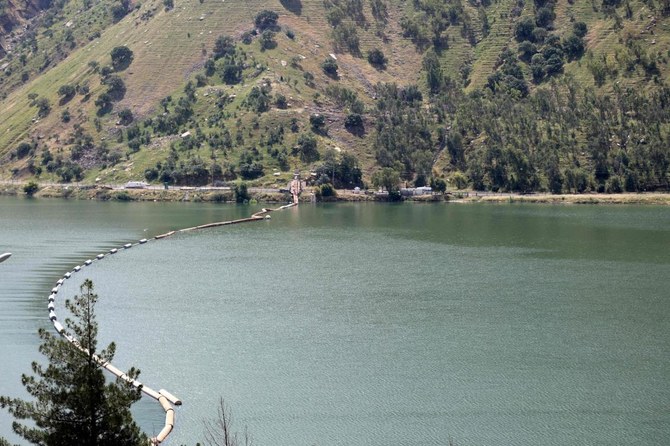BEIRUT: Lebanon’s political class was squabbling on Wednesday to agree on a Sunni figure to designate as the future prime minister, ahead of binding parliamentary consultations with President Michel Aoun on Thursday.
Parliamentary blocs attempted to communicate with each other but failed to agree on a name.
Najib Mikati, caretaker premier, enjoys the support of the traditional parliamentary blocs that will rename him to head a four-month government. Its term will conclude when Aoun’s term ends in October and a new president is elected. Meanwhile, many have been discussing designating Nawaf Salam, a former ambassador and judge on the International Court of Justice.
Hezbollah and its allies are seeking to establish a parliamentary majority for its political side and to secure the votes of 65 MPs for its candidate, with the head of the Hezbollah parliamentary bloc saying it must “realize the importance of resistance.”
Meanwhile, Hezbollah’s Christian ally the Free Patriotic Movement refused to designate Mikati and is setting impossible conditions, such as requesting sovereign ministries, and most importantly, keeping control of the Energy Ministry.
Lebanese Forces leader Samir Geagea said the party’s MPs will not designate anyone “because the proposed candidates do not meet our criteria.”
The Progressive Socialist Party and the Kataeb Party have decided to designate Salam.
The Takaddom party’s MP Mark Daou and MP Najat Saliba have voiced their decision to designate Salam, while other independent and reformist MPs have refrained from announcing their decisions.
However, independent MP Nabil Badr said that he and 13 other MPs will designate Mikati, which will increase the latter’s chances with the support he will receive from the MPs of Hezbollah, the Amal Movement, and others.
It remains uncertain whether or not Mikati will be able to form a government that is acceptable to the ruling parties within a short time, especially after some recent governments took a year to form.
This new political confusion wreaked havoc on the management of the country’s affairs. Bakeries and shops ran out of bread on Wednesday, with the owners of mills and bakeries blaming the Economy Ministry.
Similar to gasoline and medicine, Arab bread made from subsidized wheat is now being sold on the black market at a very high price.
On Wednesday, Economy Minister Amin Salam referred the issue to the Financial Public Prosecution, in which he mentioned “the greed of those monopolizing people’s sustenance.”
The minister’s office said: “Some bakery owners sold subsidized flour for Arab bread on the black market at double prices. They have also been using it to make sweets, cakes and French bread, generating double profits. They are thus wasting public money.”
Riad Salameh, Lebanon’s central bank governor, said in an interview that when he accepted to “lend the Lebanese state, it was because there were laws allowing it to borrow from the Banque du Liban, and depositors believe that the money they put in the banks was taken by the BDL, and this is not true.”
He added: “The wrong political decisions that were taken have led to the local currency’s depreciation. Those responsible are blaming BDL and me. I never imagined some would default or try to shut down banks and turn the economy into a cash economy.
“The secret for the BDL standing on its feet lies in our commitment to not implement any reckless policy and we were thus able to secure financing for the country. Without the BDL, the government would not have been able to purchase wheat and medicines. We devised plans that introduced dollars to the BDL, which allowed it to use its reserves to secure subsidies. We only used $2.2 billion from the end of 2021, until June 15. We still have $11 billion."
Salameh stressed: “Lebanon needs between $15 billion and $20 billion to get back on its feet. The BDL was not late in providing dollars to importers of medicines for chronic illnesses, including cancer medicines. Subsidized medicines were cut off and medicines sold in dollars are available. It is not my job to go after these dealers.”
Speaking about Lebanon’s agreement with the International Monetary Fund, he said: “An amount of $3 billion from the IMF is not enough. Lebanon needs $400 million every month to secure diesel and gasoline alone, in addition to $35 million to secure medicines, as well as it needs $300 million annually to secure wheat. However, Lebanon needs the IMF, through which it will regain trust.”
He added: “Mafias are taking over the pharmaceutical, wheat, and gasoline sectors, and the state feeds the mafias’ profits. Some are trying to blame the BDL, and I have confronted such attempts. I cannot give names, but it is clear who these parties are.”
Speaking about the politicians who transferred their money abroad, he said: “The banks provided us with information, not names, because they do not have the right to give out people’s names, but we can review the banks’ documents to see if these regulations were done properly.
“Political pressure is being exerted on me by my political opponents, who tell some judges what they should do. Those who want my head say so publicly.”



